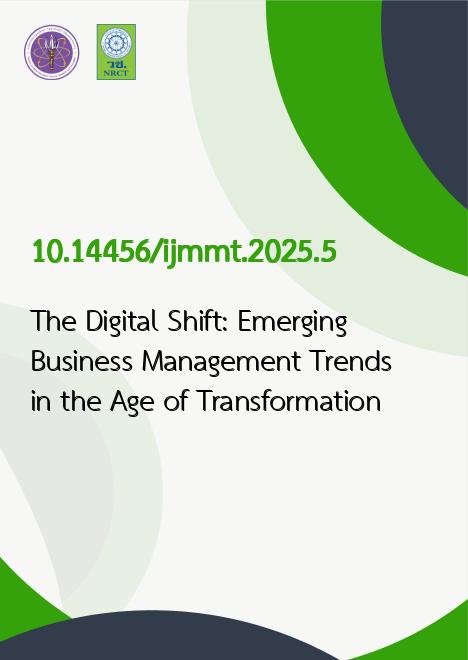
|
The Digital Shift: Emerging Business Management Trends in the Age of Transformation |
|---|---|
| รหัสดีโอไอ | |
| Creator | Phanutat Sawadthaworn |
| Title | The Digital Shift: Emerging Business Management Trends in the Age of Transformation |
| Contributor | Thanyachanok Pawala, Sanya Kenaphoom, Paripon Jumroenpat, Somboon Kaewlamai |
| Publisher | Banndamnoen Press |
| Publication Year | 2568 |
| Journal Title | International Journal of Multidisciplinary in Management and Tourism |
| Journal Vol. | 9 |
| Journal No. | 2 |
| Page no. | 181-196 |
| Keyword | Digital Shift, Emerging Business Management, Trends, Transformation |
| URL Website | https://so03.tci-thaijo.org/index.php/ijmmt |
| Website title | https://so03.tci-thaijo.org/index.php/ijmmt |
| ISSN | 2730-3306 |
| Abstract | Innovations like blockchain, cloud computing, artificial intelligence (AI), and the Internet of Things (IoT) are propelling the digital age, which is changing the fundamentals of corporate administration and operations. The demands of speed, flexibility, and customer-centricity are posing a growing threat to traditional models, which is causing a systemic change in industries. The purpose of this study is to investigate how business management practices are affected strategically by digital transformation. Agile management, data-driven decision-making, remote and hybrid work, customer-centric tactics, and platform-based business models are among the new trends it looks into. To examine the consequences of digital transition, this qualitative study integrates knowledge from industrial case studies, scholarly literature, and technology frameworks. To find recurrent trends in management strategies for the digital age across different industries, the study uses a thematic analysis technique. The results show a dramatic change from product-focused, hierarchical management to customer-focused, decentralized, technology-integrated structures. While data analytics and real-time decision-making generate competitive advantage, agile approaches improve organizational flexibility and innovation. Furthermore, new digital skills and collaboration technologies are needed as platform-based ecosystems and hybrid work models become more commonplace. In conclusion, the digital transformation is not a one-time event; rather, it is a continuous process. Business leaders must support inclusive innovation, ethical data usage, and ongoing learning. Future studies should examine the long-term impacts of emerging technologies like generative AI as well as sector-specific applications. Investing in digital literacy, encouraging adaptable leadership, and incorporating digital technologies into strategic and educational frameworks are some examples of practical ideas. |